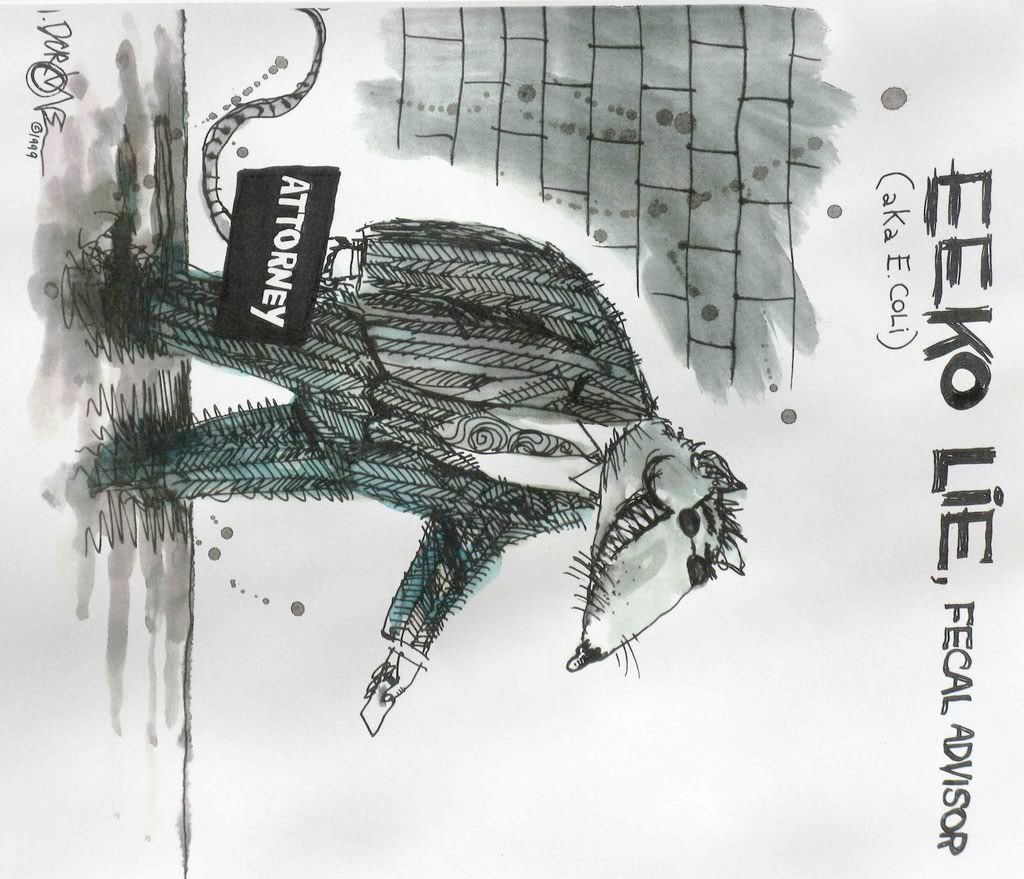As many as 30 people in New York, Tennessee, Ohio and Michigan are suffering from gastroenteritis after consuming shredded romaine lettuce that was contaminated with E. coli O145, according to CDC. Twenty-three of the cases are confirmed; the other seven are described as "probable" cases.
Twelve of the victims have been hospitalized – three of them with hemolytic uremic syndrome (HUS). Fortunately, there have been no deaths so far.
The outbreak strain has been recovered from a previously unopened package of shredded romaine lettuce obtained from an institution that received the lettuce from Freshway Foods (Sidney, OH). Freshway, on May 6th, recalled all Freshway and Imperial Sysco brand products containing romaine lettuce with a use by date of May 12 or earlier.
The Freshway lettuce apparently was harvested from a farm in the area of Yuma, Arizona. Two other fresh produce distributors – Vaughan Foods (Moore, OK) and Andrew Smith Co. (Spreckels, CA) – also have initiated recalls.
E. coli O145, like its better known relative E. coli O157:H7, is one of more than 250 types of E. coli that produce shiga toxin – a toxin that causes dysentery-like symptoms and can trigger the life-threatening HUS syndrome. Shiga-toxin producing strains of E. coli are referred to collectively as STEC E. coli.
CDC recommends that clinical labs test patients simultaneously for both E. coli O157:H7 and for non-O157 STEC strains. But FDA, USDA, and the food industry focus on E. coli O157:H7, while ignoring other STEC strains. This is a shortsighted approach.
Non-O157 STEC E. coli have caused serious outbreaks of foodborne disease around the world, including:
- E. coli O111:H8 infected 55 attendees at a high school cheerleading camp in Texas in 1999.
- E. coli O111 was responsible for 23 cases of HUS and an additional 30 cases of bloody diarrhea in Australia in 1995; the outbreak was traced to contaminated sausages.
- E. coli O26:H11 infected 20 individuals in Denmark in 2007; an organic fermented beef sausage was the vehicle.
- Non-O157 STEC E. coli are more prevalent in Iran than the "traditional" E. coli O157:H7.
- New Mexico identified 111 cases of STEC E. coli between 2004 and 2007; 71 of the 111 cases were caused by non-O157 strains.
- A recent study in India found 16 cases of STEC E. coli infections out of 1000 stool samples tested; none of the isolates were E. coli O157:H7.
- E. coli O103:H2, E. coli O145:H28 and E. coli O174:H21 were recovered from farm residents suffering from diarrheal infections. These non-O157 STEC infections were traced to cattle.
- E. coli O111 – a non-O157 STEC E. coli – infected 341 patrons of the Country Cottage restaurant in Locust Grove, OK in 2008. Seventy people were hospitalized. One victim died.
- Two non-O157 STEC E. coli strains – E. coli O26:H11 and E. coli O80:H2 – were responsible for 16 cases of HUS in France. Camembert cheese made from raw milk was behind the 2005 outbreak. The STEC strains were recovered from the raw milk, from the cheese, and from the patients.
In 1996, David Acheson (FDA's former food safety czar) and Gerald Keusch wrote in ASM News:
"Whatever the serotype, if a bacterium is making Shiga toxins in the gastrointestinal tract of an infected individual, that person is at risk for developing [hemorrhagic colitis] and HUS."
USDA has been "studying" a petition to expand its definition of "adulterated meat" to include meat that is contaminated with non-O157 STEC E. coli.
The time for study is past. It's time to act.
If you would like to receive automatic email alerts for all new articles posted on eFoodAlert, please click here or submit your request using the sidebar link. Please include "subscribe eFoodAlert" in the subject line.






No comments:
Post a Comment
Note: Only a member of this blog may post a comment.